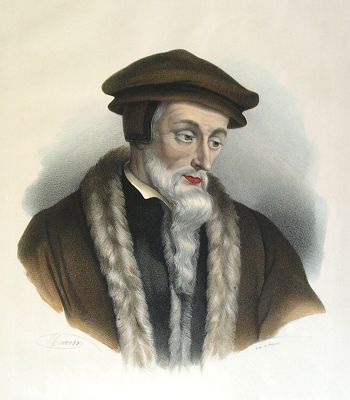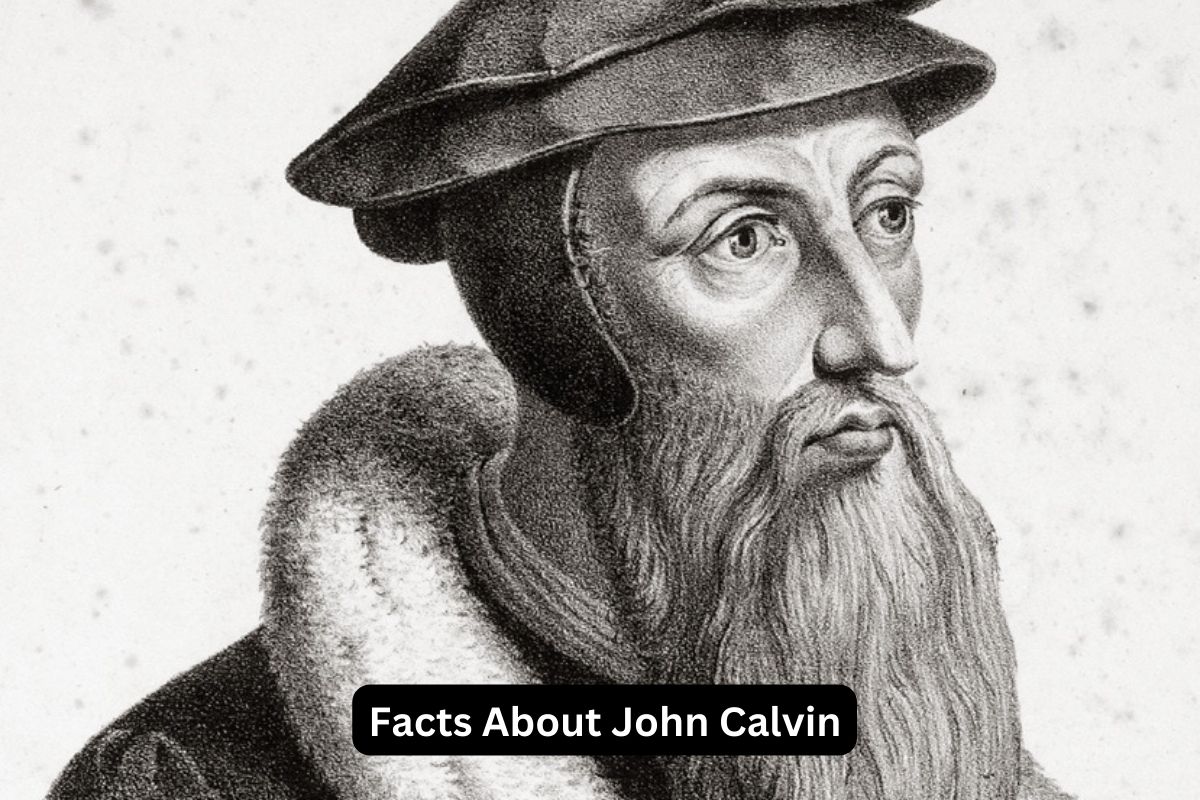John Calvin (1509-1564) was a French theologian and religious reformer who played a pivotal role in the Protestant Reformation during the 16th century.
Born in Noyon, France, he initially studied law and later embraced Protestantism. He is best known for his influential work “Institutes of the Christian Religion,” which outlined his theological beliefs.
Calvin settled in Geneva, Switzerland, where he became a central figure in the city’s religious and civic life. He developed the theological system known as Calvinism, which emphasized the sovereignty of God, predestination, and the authority of Scripture.
His ideas had a significant impact on European religious conflicts and the spread of Reformed Christianity. Calvin helped establish the University of Geneva and left a lasting legacy in Christian theology. He died in Geneva in 1564, and his theological influence continues to be felt in various branches of Protestantism today.
John Calvin Facts
1. Born in 1509 in Noyon, France
John Calvin was born as Jean Cauvin in the town of Noyon, which was then part of the Kingdom of France. He was born into a middle-class family, and his father worked as a notary for the local cathedral chapter.
Also Read: Protestant Reformation Timeline
Noyon was located in the Picardy region of northern France, which was a significant cultural and religious center during the Renaissance.

2. Studied law and theology at the University of Paris
Calvin’s early education was marked by his father’s intention for him to become a priest. He was sent to the Collège de la Marche in Paris at the age of 14 and later attended the University of Paris. There, he initially studied humanities and Latin literature but eventually shifted to the study of law.
Also Read: Accomplishments of John Calvin
His legal education exposed him to humanist ideas and critical thinking, which would later influence his theological work. During this period, he also began to show an interest in the emerging Protestant movement.
3. Converted to Protestantism in the early 1530s
It was during his early adulthood, in the early 1530s, that Calvin underwent a profound religious conversion. The exact circumstances of this conversion are not well-documented, but it marked a significant turning point in his life.
He began to embrace Protestant ideas and became an advocate for the Reformation, particularly influenced by the writings of figures like Martin Luther.
This conversion set him on a path toward becoming a leading theologian and reformer in his own right, ultimately playing a pivotal role in the development of Reformed Christianity.
4. Wrote “Institutes of the Christian Religion” in 1536
In 1536, at the age of 26, John Calvin published his most famous and influential work, “Institutes of the Christian Religion.”
Initially written in Latin, it was intended as an introductory text on Protestant theology and Christian doctrine. Over the years, Calvin expanded and revised the work, with the final edition being published in 1559.
The “Institutes” systematically presents his theological beliefs, emphasizing the sovereignty of God, the authority of Scripture, and the doctrine of predestination. It became a foundational text for Reformed theology and played a crucial role in shaping Protestant thought.

5. Settled in Geneva, Switzerland, in 1536
Calvin’s life took a significant turn when he fled from France to avoid religious persecution due to his Protestant beliefs. He sought refuge in Geneva, a city in Switzerland known for its commitment to the Reformation.
In Geneva, Calvin was initially asked to stay and assist in the reform of the church. Over time, he became a central figure in the city’s religious and civic life.
He played a leading role in establishing a theocratic government in Geneva, where church and state were closely intertwined. His influence extended not only to religious matters but also to the governance of the city itself.
6. Developed the theological system known as Calvinism
John Calvin’s theological teachings, often referred to as Calvinism, had a profound impact on Protestantism.
Key elements of Calvinism include the belief in the absolute sovereignty of God, the concept of predestination (the idea that God has chosen certain individuals for salvation), and a strong emphasis on the authority of the Bible.
Calvinism also influenced the structure and organization of churches, with a focus on church discipline and a simple, austere style of worship. Calvinism spread beyond Geneva and became a major branch of Protestantism, with followers throughout Europe and later in North America.
7. Influential in European religious conflicts
John Calvin’s theological ideas and the spread of Calvinism had a profound influence on European religious conflicts during the 16th century.
Calvinism was a major force in the Reformation and contributed to religious tensions and wars in various regions, including the French Wars of Religion and the Eighty Years’ War in the Netherlands. Calvinists often faced persecution and struggled for religious freedom and recognition.

8. His teachings shaped Reformed Christianity
Calvinism, based on the teachings of John Calvin, became one of the major branches of Reformed Christianity. Calvinist theology influenced the development of other Reformed traditions, including Presbyterianism and Congregationalism.
These denominations adopted key Calvinist doctrines, church structures, and forms of worship. The Westminster Confession of Faith, a foundational document for many Presbyterian churches, reflects Calvinist principles.
9. Helped establish the University of Geneva
While in Geneva, John Calvin played a crucial role in the establishment of the University of Geneva in 1559. The university provided education in various fields, including theology, law, medicine, and the humanities.
Calvin himself served as a professor of theology and contributed to the intellectual and theological development of students who would go on to play important roles in the spread of Reformed Christianity.
10. Died in Geneva in 1564, leaving a lasting legacy
John Calvin passed away on May 27, 1564, in Geneva. Despite his death, his theological legacy continued to grow. Calvinism, with its emphasis on predestination, the sovereignty of God, and the authority of Scripture, spread throughout Europe and, later, to other parts of the world.
It played a significant role in the religious landscape of countries like Scotland, the Netherlands, and the United States. Today, Calvinism remains a prominent theological tradition within Protestantism, and Calvin’s writings continue to be studied and respected by theologians and scholars.
